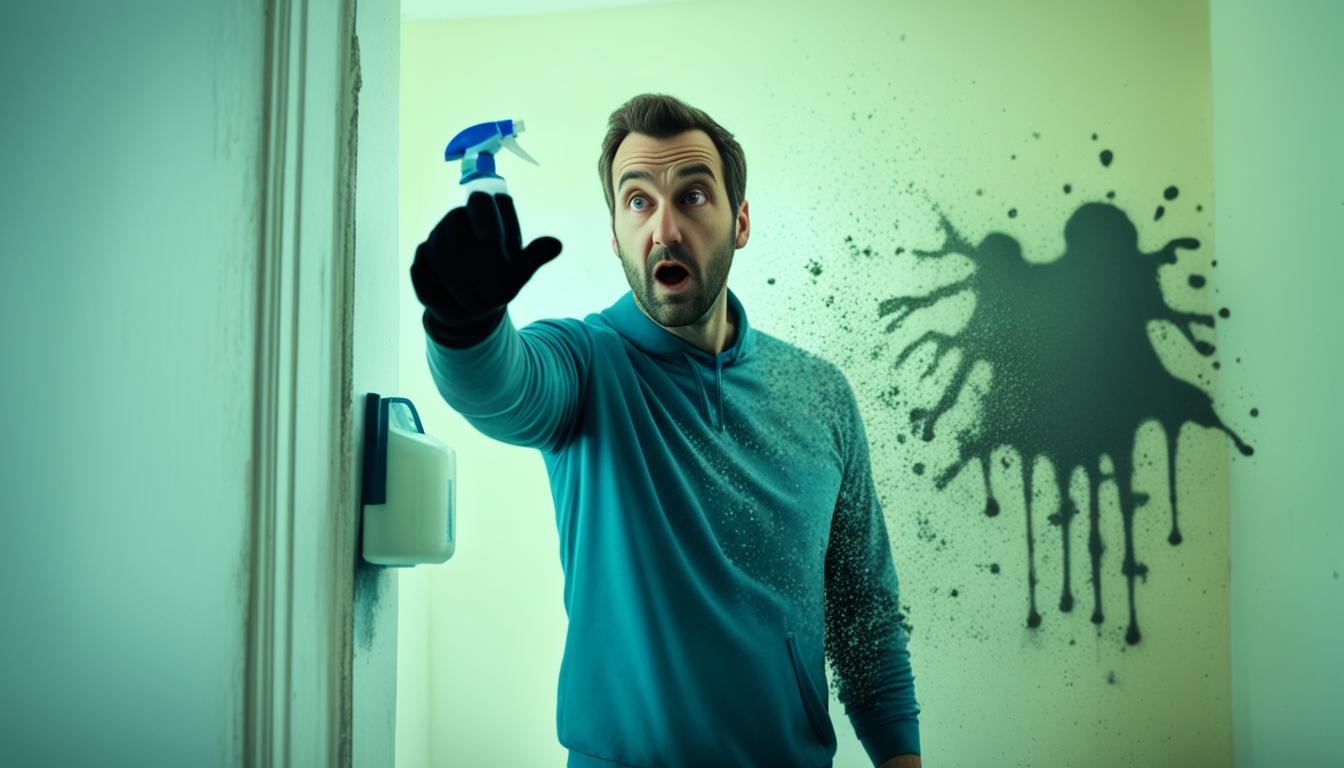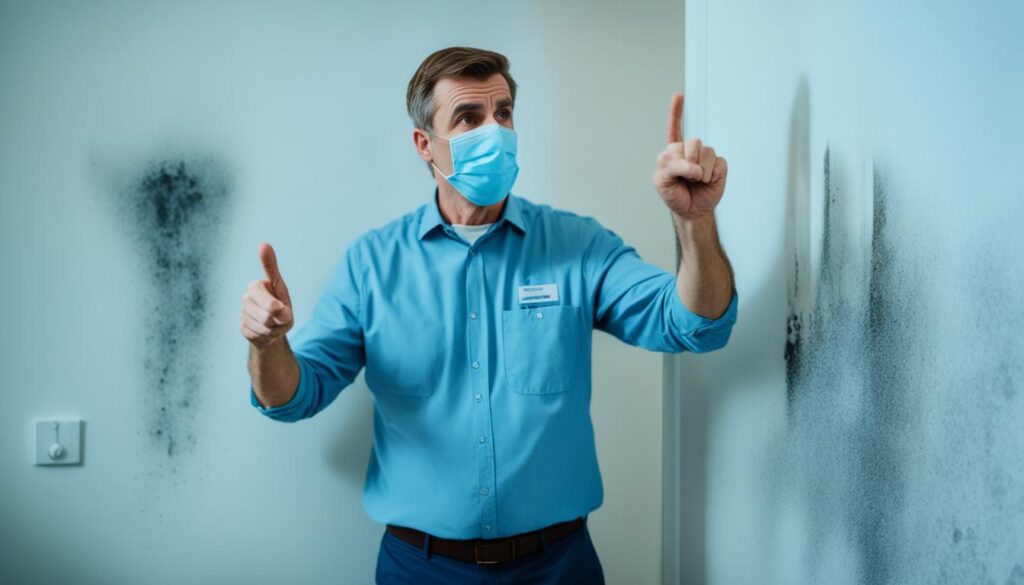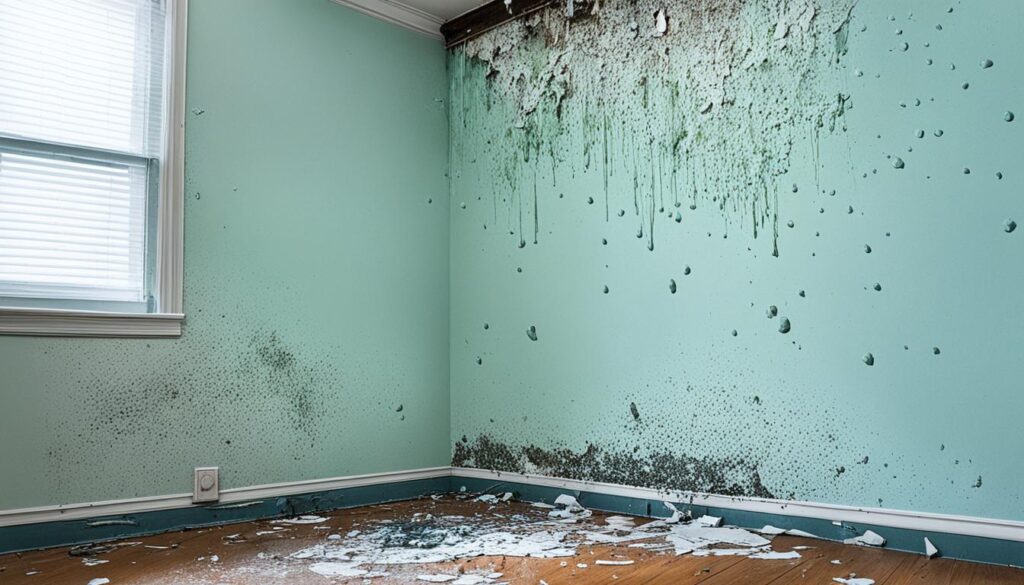
Landlord Won’t Fix Mold? Know Your Rights & Steps
Landlord Won’t Fix Mold? Know Your Rights & Steps
When mold becomes an issue in a rental property, it’s important for tenants to understand their rights and take appropriate action. Mold exposure can pose serious health risks, and landlords have a responsibility to maintain a safe living environment for their tenants. In this section, we will explore the tenant rights mold and the necessary steps to address mold issues when a landlord fails to take action.
Mold can cause various health problems, ranging from allergies and respiratory issues to more severe conditions. Prolonged exposure to mold can exacerbate existing health conditions and lead to new ones. Before discussing tenant rights mold, let’s take a moment to understand the potential hazards associated with mold exposure.
“Mold-related health issues can include allergic reactions, asthma attacks, respiratory infections, and even neurological symptoms in some cases. It is crucial for tenants to address mold problems promptly to safeguard their well-being.”
Tenants often have concerns about the responsibility of landlords when it comes to mold remediation. While landlord obligations can vary by state, there are generally legal requirements for landlords to maintain a safe and habitable living space. This includes addressing mold issues in a timely manner.
In the next section, we will delve into the specific rights and responsibilities of tenants when it comes to dealing with mold in rental properties. Understanding these rights will empower tenants to advocate for their well-being and take the necessary steps to ensure their living environment is mold-free.
Tenant Rights and Responsibilities
As a tenant, it’s crucial to understand your rights and responsibilities when it comes to mold in your rental property. Landlords have a legal obligation to maintain safe and habitable living conditions, which includes addressing mold issues promptly. If your landlord fails to fulfill their responsibilities, there are steps you can take to protect yourself.
Landlord Responsibility for Mold Remediation
Under the law, landlords are typically responsible for ensuring that their rental properties are free from mold or any other conditions that could pose a health hazard. This means that if there is mold growth in your rental unit, it is generally the landlord’s responsibility to address the issue. Landlords should take immediate action to assess the extent of the mold problem and carry out necessary mold remediation measures.
Withhold Rent and Legal Action
If your landlord fails to take action or refuses to address the mold problem, you may have the right to withhold rent or take legal action. However, it’s important to note that these actions should generally be a last resort after following certain steps. Always consult with a legal professional to understand the specific laws and processes in your jurisdiction.
Steps to Take
- Notify Your Landlord: Start by notifying your landlord in writing about the mold issue. Document the date, time, and details of your communication.
- Mold Inspection: Request a professional mold inspection to assess the extent of the problem and provide documentation of the mold presence.
- Consult an Attorney: If your landlord fails to address the mold issue, consider consulting a qualified attorney who specializes in landlord-tenant law.
- Health and Safety Authorities: If the mold problem poses a serious health risk and your landlord still refuses to take action, you may report the issue to local health or housing authorities.
- Legal Action: As a last resort, you may consider taking legal action against your landlord to enforce your rights and seek remedies for the damages caused by the mold.
Remember, Your Health Matters
Mold exposure can lead to various health problems, including respiratory issues, allergies, and even infections. It’s crucial to prioritize your health and well-being. By understanding your rights and taking appropriate action, you can protect yourself from the harmful effects of mold in your rental property.
“Landlords have a legal obligation to maintain safe and habitable living conditions, which includes addressing mold issues promptly.”
Dealing with a Mold Repair Dispute
When faced with a landlord who refuses to fix mold issues in your rental property, it is important to take swift action to protect your health and well-being. By following these specific steps, you can navigate the mold repair dispute effectively and ensure a safe living environment.
- Document the Mold Problem: Start by thoroughly documenting the mold problem in your rental unit. Take clear photographs or videos of the affected areas to demonstrate the extent of the mold growth. Make sure to include date stamps, as this will be crucial evidence if the dispute escalates.
- Communicate with the Landlord: Notify your landlord in writing about the mold issue and request immediate repairs. Be sure to keep copies of all communication, including any written notices, emails, or text messages. Clearly state your concerns and emphasize the urgency of the situation.
- Request a Mold Inspection: If your landlord refuses to address the mold problem, consider requesting a professional mold inspection. This inspection can provide an objective assessment of the mold issue and help reinforce your case if legal action becomes necessary. Make sure to hire a certified mold inspector.
- Seek Legal Assistance if Necessary: If your landlord still refuses to fix the mold problem despite your efforts, it may be time to seek legal assistance. Consult with a lawyer who specializes in tenant rights and mold-related disputes. They can guide you through the legal process and help you understand your rights and options.
Example:
“I had been dealing with a persistent mold problem in my rental unit for months, and my landlord refused to do anything about it. Frustrated and concerned about my health, I decided to take action. I documented the mold growth, notified my landlord in writing, and requested immediate repairs. When my landlord still ignored my requests, I obtained a professional mold inspection that confirmed the severity of the issue. With the support of a knowledgeable lawyer, I was able to take legal action and ultimately secure the necessary repairs.”
By following these steps and exploring legal options, tenants can effectively address mold repair disputes and ensure that their rental property is maintained in a safe and habitable condition.

Legal Action and Remedies for Landlord Negligence in Mold Cases
When faced with a landlord who negligently fails to address mold issues, tenants have legal options available to them. Taking legal action can provide remedies for tenants and ensure that landlords fulfill their responsibilities in maintaining safe living conditions.
One potential legal action that tenants can pursue is filing a lawsuit against the landlord for damages caused by mold exposure. This can include medical expenses, property damage, and potentially even compensation for emotional distress. By seeking legal recourse, tenants can hold landlords accountable for their negligence and seek compensation for the harm they have suffered.
Another legal option available to tenants is seeking a court order for mold remediation. If the landlord refuses or fails to address the mold issues despite repeated requests, tenants can petition the court for a specific order requiring the landlord to take action. This legal remedy ensures that the landlord is legally obligated to resolve the mold problem within a specified timeframe and to bear the associated costs.
It’s important for tenants to document all instances of the landlord’s negligence, including any communication regarding the mold issue and efforts made to resolve it. This documentation will serve as crucial evidence in any legal action taken against the landlord.
While legal action can be a viable option for tenants dealing with a negligent landlord, it is advisable to consult with an attorney experienced in landlord-tenant law to understand the specific laws and regulations in their jurisdiction.
Remember, tenants have the right to live in a safe and habitable environment, and landlords have the legal responsibility to address and remediate mold issues promptly. By understanding their legal rights and taking appropriate legal action, tenants can protect their health and well-being in the face of landlord negligence.

Conclusion
In conclusion, it is crucial for tenants to be aware of their rights and responsibilities when it comes to dealing with mold in rental properties. When faced with a landlord who refuses to fix mold issues, tenants should not hesitate to take necessary action to ensure their health and well-being.
Landlords have a responsibility to provide habitable living conditions, which includes addressing mold problems promptly. If a landlord fails to fulfill this obligation, tenants have the right to take legal action to protect themselves.
Documenting the mold problem, communicating with the landlord, requesting a mold inspection, and seeking legal assistance are all steps that can be taken to address mold issues in rental properties. It is important to remember that tenant health and safety should always be a top priority.
Understanding tenant rights and knowing how to navigate the legal landscape can help tenants protect themselves and hold landlords accountable for their negligence. If you find yourself facing mold issues and your landlord refuses to take appropriate action, don’t hesitate to seek guidance from legal professionals who specialize in tenant rights and mold remediation.
FAQ
What are the health risks associated with mold exposure?
Mold exposure can lead to various health issues, including allergies, respiratory problems, and skin irritation. It can be especially harmful to individuals with compromised immune systems.
Do tenants have rights when it comes to addressing mold issues in rental properties?
Yes, tenants have the right to a habitable dwelling, which includes living in a mold-free environment. Landlords are responsible for maintaining safe living conditions and addressing mold problems promptly.
What can tenants do if their landlord refuses to fix a mold problem?
Tenants can start by documenting the mold issue, including photographs and written correspondence with the landlord. They should communicate their concerns in writing and request a mold inspection. If the landlord still fails to take action, tenants may need to consider legal assistance or further action to protect their rights.
Can tenants take legal action against a landlord for negligence in mold cases?
Yes, tenants can pursue legal action against a landlord who negligently fails to address mold issues. This may include filing a lawsuit for damages, seeking a court order for mold remediation, or pursuing other remedies available under local laws and regulations.
What should tenants do to deal with mold in rental properties?
When faced with mold problems in a rental property, tenants should promptly alert their landlord or property management. It is advisable to communicate in writing and keep a record of all correspondence. Tenants can also request a mold inspection and, if necessary, seek legal assistance to ensure their rights are protected.




